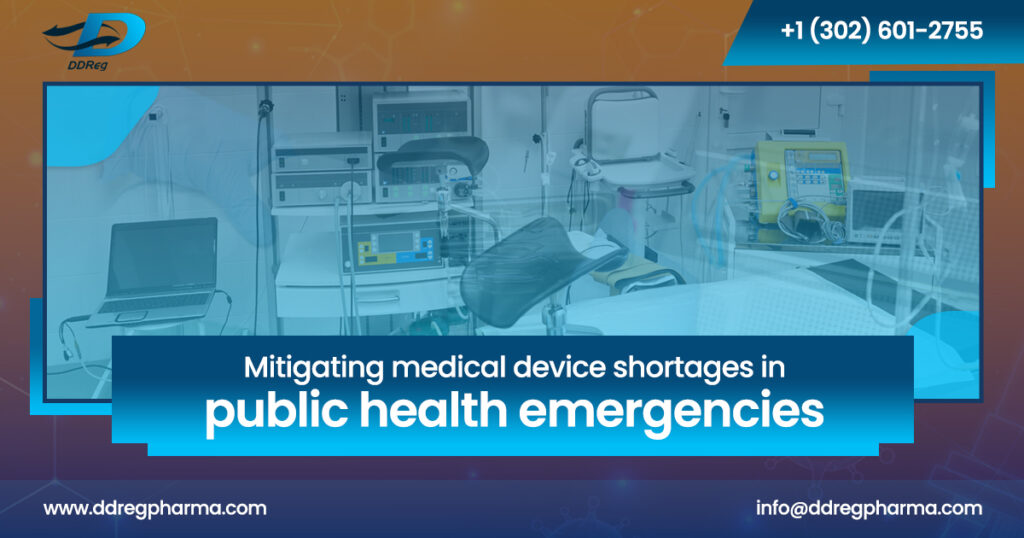The onset of the pandemic amplified an already growing concern in the European Union (EU)- the shortage of medicines, equipment, and devices that subsequently burdens the health system and puts patients at risk. Some of the reasons for these kinds of shortages are related to problems in manufacturing that can delay production, shortages of raw materials- as the EU largely depends on non EU countries i.e., China & India, problems in distribution, labor disruption and increased demand for medicines particularly following natural disasters or epidemics and public health emergencies (PHEs)[1].
In 2020 the European University Hospital Alliance (EUHA) emphasized the increasing need for certain medicines for patients in intensive care units (ICUs) that were battling Covid-19. These included antibiotics, sedatives, anesthetics, muscle relaxants and more [2].
Managing shortages in the EU
National Competent Authorities (NCAs) deal with medicine shortages and work together with authorities within, and outside of, the EU to mitigate chances of shortages and the subsequent impact on patients & healthcare system. The European Medicines Agency (EMA)’s initiatives in response to medicine shortages during Covid-19 were notable in exchanging information on crucial medicine shortages for Covid-19 between EMA, Member States, and the European Commission (EC) [3].
In March 2022, the Regulation (EU) 2022/123 on EMA’s role in preparing for a crisis and managing medicinal products & medical devices became applicable with the aim to facilitate more coordination for preventing shortages of critical medicines within the EU by setting up procedures to support the same [4]. It also set up the Medicines Shortages Steering Group (MSSG) who also established a list of particular medicinal products that needed to be monitored. Additional role of the MSSG included evaluating information regarding the health emergency/major event and providing recommendations to the EC and Member States accordingly.
Medical device shortages in the EU: additional responsibilities of EMA
In February 2023, the additional role that EMA has in monitoring and mitigating critical medical device shortages during a public health emergency became applicable; these additional provisions constitute the final component of Regulation (EU) 2022/123 and state the EMA’s responsibility for coordinating medicine and device shortages, including in-vitro diagnostics, within the EU. The Medical Device Shortages Steering Group (MDSSG) is to be established that has a similar role as the MSSG but for medical devices, and must collaborate with the MSSG during public health emergencies.
According to EMA, the responsibilities of the MDSSG include adopting lists of devices that are considered critical for public health emergencies that indicate new reporting obligations for different stakeholders such as device manufacturers, authorized representatives, importers, distributors, and notified bodies that are responsible for conducting conformity assessments. In order to facilitate fast and efficient communication in the event of a public health emergency, the medical device stakeholders must register their single point of contact via the IRIS platform. The MDSSG will constitute representatives from EMA, EC, and Member States [5, 6].
Medical device registration with DDReg
DDReg has supported its customers in bringing medical devices to multiple markets in accordance with applicable legislations and regulations. Get in touch with us at info@ddregpharma.com to know more.
References and Further Reading
[1] European Medicines Agency. Towards better prevention of medicine shortages in the EU. 2022
[2] European University Hospital Alliance. University hospitals urgently call for more European collaboration to prevent drug shortages. 2020
[3] European Medicines Agency. Monitoring and mitigating shortages of medicines and devices. 2022
[4] European Council. Regulation (EU) 2022/123. 2022
[5] European Medicines Agency. IRIS platform. 2023
[6] European Medicines Agency. A new role for EMA in monitoring and mitigating critical medical device shortages during public health emergencies. 2023

